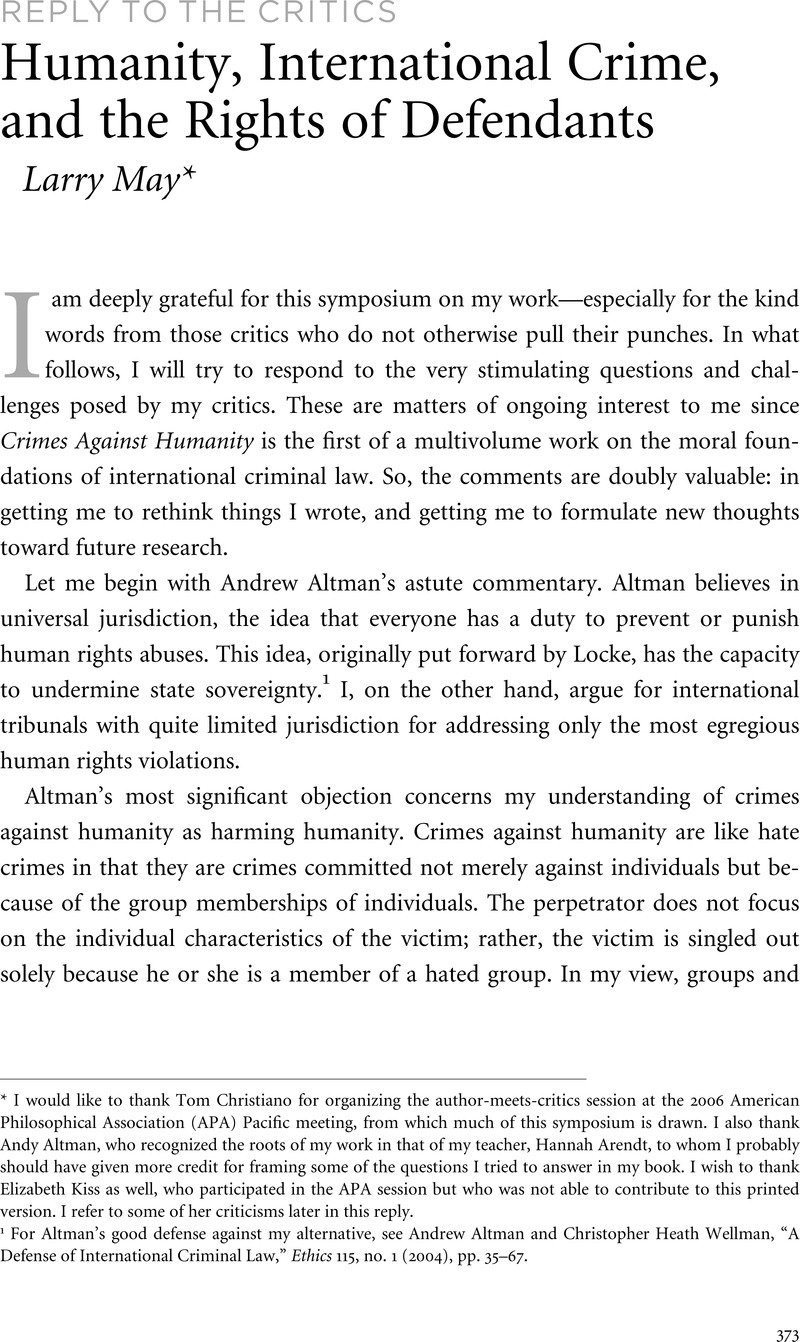Article contents
Humanity, International Crime, and the Rights of Defendants
Published online by Cambridge University Press: 25 March 2011
Abstract

- Type
- Symposium
- Information
- Copyright
- Copyright © Carnegie Council for Ethics in International Affairs 2006
References
1 For Altman's good defense against my alternative, see Andrew Altman and Christopher Heath Wellman, “A Defense of International Criminal Law,” Ethics 115, no. 1 (2004), pp. 35–67.
2 See the discussion of solidarity in my book, The Socially Responsive Self: Social Theory and Professional Ethics (Chicago: University of Chicago Press, 1996).
3 Larry May, War Crimes and Just Wars (New York: Cambridge University Press, forthcoming).
4 See his extremely important paper, “A Theory of Crimes Against Humanity,” Yale Journal of International Law 29, no. 1 (2004), pp. 85–140.
5 I take up this issue in much greater detail in my new book manuscript, Aggression and Crimes Against Peace, where I spend a section trying to sort out what exactly is the precedent of Nuremberg.
6 Elizabeth Kiss voiced this objection concerning such alternatives as the South African Truth and Reconciliation Commission. Also see her excellent essay, “Moral Ambition Within and Beyond Political Constraints: Reflections on Restorative Justice,” in Robert I. Rotberg and Dennis Thompson, eds., Truth v. Justice: The Morality of Truth Commissions (Princeton: Princeton University Press, 2000), pp. 68–98.
- 7
- Cited by




